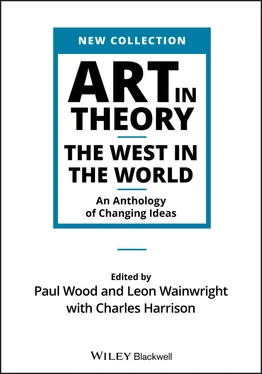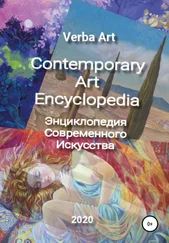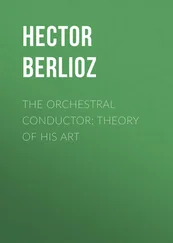26. God, who hath given the World to Men in common, hath also given them reason to make use of it to the best advantage of Life, and convenience. The Earth, and all that is therein, is given to Men for the Support and Comfort of their being. And though all the Fruits it naturally produces, and Beasts it feeds, belong to Mankind in common, as they are produced by the spontaneous hand of Nature; and nobody has originally a private Dominion, exclusive of the rest of Mankind, in any of them, as they are thus in their natural state: yet being given for the use of Men, there must of necessity be a means to appropriate them some way or other before they can be of any use, or at all, beneficial to any particular Man. The Fruit, or Venison, which nourishes the wild Indian , who knows no Inclosure, and is still a Tenant in common, must be his, and so his, i.e . a part of him, that another can no longer have any right to it, before it can do him any good for the support of his Life.
[…]
28. He that is nourished by the Acorns he pickt up under an Oak, or the Apples he gathered from the Trees in the Wood, has certainly appropriated them to himself. No Body can deny but the nourishment is his. I ask then, When did they begin to be his? When he digested? Or when he eat? Or when he boiled ? Or when he brought them home? Or when he pickt them up? And ’tis plain, if the first gathering made them not his, nothing else could. That labour put a distinction between them and common. That added something to them more than Nature, the common Mother of all, had done; and so they became his private right. And will any one say he had no right to those Acorns or Apples he thus appropriated, because he had not the consent of all Mankind to make them his? Was it a Robbery thus to assume to himself what belonged to all in Common? If such a consent as that was necessary, Man had starved, notwithstanding the Plenty God had given him. […]
30. Thus this Law of reason makes the Deer that Indian’s who hath killed it; ’tis allowed to be his goods who hath bestowed his labour upon it, though before, it was the common right of every one. And amongst those who are counted the Civiliz’d part of Mankind, who have made and multiplied positive Laws to determine Property, this original Law of Nature for the beginning of Property , in what was before common, still takes place; and by vertue thereof, what Fish any one catches in the Ocean, that great and still remaining Common of Mankind; or what Ambergriese any one takes up here, is b y the Labour that removes it out of that common state Nature left it in, made his Propert y who takes that pains about it. […]
34. God gave the World to Men in Common; but since he gave it them for their benefit, and the greatest Conveniencies of Life they were capable to draw from it, it cannot be supposed he meant it should always remain common and uncultivated. He gave it to the use of the Industrious and Rational, (and Labour was to be his Title to it;). […]
37. […] To which let me add, that he who appropriates land to himself by his labour, does not lessen but increase the common stock of mankind. […]
45. Thus Labour, in the Beginning, gave a Right of Propert y, where‐ever any one was pleased to imploy it, upon what was common, which remained, a long while, the far greater part, and is yet more than Mankind makes use of. Men, at first, for the most part, contented themselves with what un‐assisted Nature Offered to their Necessities: and though afterwards, in some parts of the World, (where the Increase of People and Stock, with the Use of Mone y) had made Land scarce, and so of some Value, the several Communities settled the Bounds of their distinct Territories, and by Laws within themselves, regulated the Properties of the private Men of their Society, and so, by Compact and Agreement, settled the Propert y which Labour and Industry began; and the Leagues that have been made between several States and Kingdoms, either expressly or tacitly disowning all Claim and Right to the Land in the others Possession, have, by common Consent, given up their Pretences to their natural common Right, which originally they had to those Countries, and so have, by positive agreement, settled a Propert y amongst themselves, in distinct Parts and parcels of the Earth: yet there are still great Tracts of Ground to be found, which (the Inhabitants thereof not having joyned with the rest of Mankind, in the consent of the Use of their common Money) lie waste , and are more than the People, who dwell on it, do, or can make use of, and so still lie in common. […]
48. And as different degrees of Industry were apt to give Men Possessions in different Proportions, so this Invention of Mon ey gave them the opportunity to continue to enlarge them. For supposing an Island, separated from all possible Commerce with the rest of the World, wherein met there were but a hundred Families, but there were Sheep, Horses and Cows, with other useful Animals, wholsome Fruits, and Land enough for Corn for a hundred thousand times as many, but nothing in the Island, either because of its Commonness, or Perishableness, fit to supply the place of Money : What reason could anyone have there to enlarge his Possessions beyond the use of his Family, and a plentiful supply to its Consumption, either in what their own Industry produced, or they could barter for like perishable, useful Commodities, with others? Where there is not something both lasting and scarce, and so valuable to be hoarded up, there Men will not be apt to enlarge their Possessions of Land , were it never so rich, never so free for them to take. For I ask, What would a Man value Ten Thousand, or an Hundred Thousand Acres of excellent Land , ready cultivated, and well stocked too with Cattle, in the middle of the in‐land Parts of America , where he had no hopes of Commerce with other Parts of the World, to draw Money to him by the Sale of the Product? It would not be worth the inclosing, and we should see him give up again to the wild Common of Nature, whatever was more than would supply the Conveniencies of Life to be had there for him and his Family.
49. Thus in the beginning all the World was America , and more so than that is now; for no such thing as Money was any where known. Find out something that hath the Use and Value of Money amongst his Neighbours, you shall see the same Man will begin presently to enlarge his Possessions .
Part II Enlightenment and Expansion
Introduction
Part II is designed to cover the eighteenth century, up to the period of the French revolution. These dates are not Procrustean, however, and the earliest texts date from the 1690s while the latest is from an account of the British embassy to China published in 1797. Nonetheless, the centre ground of this part concerns the European Enlightenment and the attempts of those touched by it to come to terms with the sense of a rapidly expanding world. This period of European expansion was ushered in by surging forces of capitalist development in spheres as different as finance and agriculture, as well as connected but distinct technological progress – not just the epochal invention of the steam engine but contemporary advances in shipbuilding and navigation. The primary content of Part II concerns the dimension of representation. Arguably, representations are always formed in dialectical interplay with the material dimension, but in the eighteenth century the material dimension in question was unusually expansive, marking a step‐change in the emergence of modernity, technical, industrial and institutional.
Читать дальше












